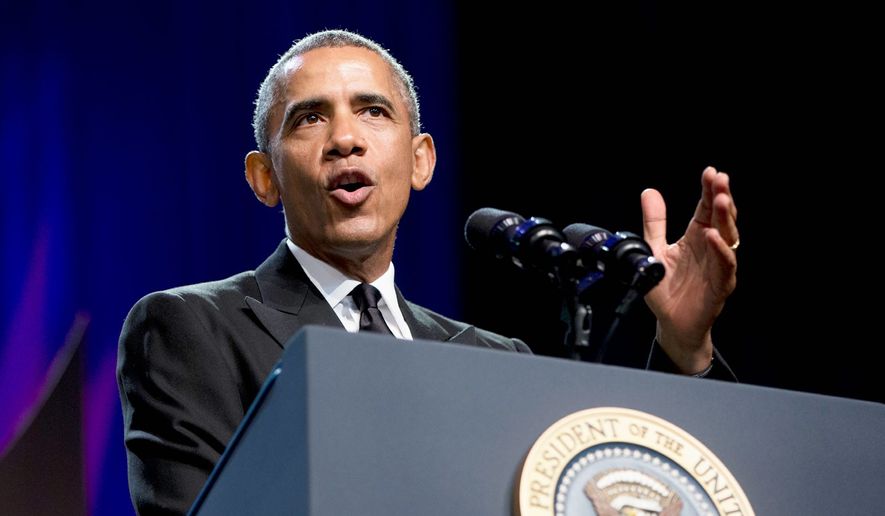It is widely expected that during this week’s visit to the United States, Pope Francis will say what is already clear to the rest of the world, but which too many other leaders are afraid to say themselves: The systematic persecution and murder of Christians, Yezidis, Muslims and other minority groups constitutes genocide.
Across broad stretches of the Middle East, Africa and South Asia, Iraq and Syria, ISIS, Boko Haram and other Wahhabi-inspired murderers are displacing, enslaving and killing religious and ethnic minorities. We have all seen the footage of blindfolded prisoners, on their knees, mercilessly beheaded and shot, among many other atrocities. Some 2 million Christians lived in Iraq only two decades ago. Today the Iraqi Kurdistan Christianity Project estimates that only 300,000 to 450,000 remain, and nearly all of them have taken refuge in Kurdistan. Christians have lived and worshipped in Mosul (the ancient city of Nineveh) for over 2,000 years. Today, none are left.
A report released this spring by the United Nations Human Rights Commission reported “acts of violence perpetrated against civilians in Iraq and Syria because of their affiliation or perceived affiliation to an ethnic or religious group.” Its statement that “it is reasonable to conclude that some of these incidents may constitute genocide” only adds to the evidence that it is time to file formal genocide charges against ISIS and its supporters.
The U.N.’s 1948 Convention on the Punishment and Prevention of the Crime of Genocide offers a very clear definition: Genocide entails certain “acts committed with intent to destroy, in whole or in part, a national, ethnical, racial or religious group.” Those acts include “killing members of the group,” “causing serious bodily or mental harm to members of the group” and “deliberately inflicting on the group conditions of life calculated to bring about its physical destruction in whole or in part.” All of which describes exactly what we’re seeing in the Middle East, Africa and South Asia.
But what difference does it make what we call it? Isn’t it just semantics? As long as we understand that it’s very, very bad, isn’t that sufficient?
As a matter of international law, calling these mass atrocities what they are makes all the difference. Genocide is a crime of monstrous proportions. Because genocide often includes both “war crimes” and “crimes against humanity,” a global response from the U.N. and its member states is needed. Acts of genocide are punishable either by the states in which the crimes occurred or, if the state or nonstate actor is the perpetrator, by an international tribunal. Calling what ISIS, al-Nusra and Boko Haram are doing in the Middle East and Africa a “genocide” makes clear that those who murder and support its efforts will be prosecuted. It is a warning, carrying the promise of a reckoning.
And, of course, our commitments do not end with a word choice. Having acknowledged that these horrors constitute genocide, governments around the world must then use all their powers under the Genocide Convention to “call upon the competent organs of the United Nations to take such action under the Charter of the United Nations as they consider appropriate for the prevention and suppression of acts of genocide.” “Calling upon” is the language of international officialdom, and it is for the Obama administration to give it force by leading a campaign to stop the genocide.
The U.N. record on genocide has been one of hesitation, half-measures and regrets. Just last year, people gathered in Rwanda to mark the 20th anniversary of the horrific genocide of Tutsis that left nearly 800,000 innocent men, women and children dead in just a few months. U.N. Chief Ban Ki-moon’s remarks said it all: “We could have done much more. We should have done much more.”
Nor did the U.N. or the United States do enough to prevent the genocide in Bosnia. As Samantha Power, the U.S. Permanent Representative to the U.N., recently said, “the perpetrators of the genocide in Srebrenica killed more than 8,000 Muslim men and boys and raped countless women and girls, in part because they felt confident that they would never be punished.” Even today, Russia and other members of the U.N. Security Council refuse to call what happened then a genocide.
The first step is to accurately and unequivocally name the crime we are trying to stop. According to Dr. Gregory H. Stanton, president of Genocide Watch and a professor at George Mason University, avoiding Orwellian terms like ethnic cleansing in favor of the more blunt and accurate term genocide “increases the probability of forceful action to end the crimes by over four times.”
Now that the pope is calling the genocide in the Middle East, Africa and Asia by its proper name, Congress and President Obama should do so as well. Iraq has already asked the U.N. to investigate. The U.S. and other nations around the world should join the request and demand that the U.N. take the next steps: an international effort to identify, arrest, prosecute and punish individuals and countries that support these crimes.
In the past, too many leaders have been too timid to name what we see and have allowed monsters to persecute and execute people for their race and religion. How many times since the Holocaust have we heard the solemn pledge “never again”? If the U.N. fails to act this time, only to concede years from now that it didn’t do nearly enough to prevent and punish genocide, it will be a case of “yet again” — and we owe the victims of these crimes better than that.
• Ann Corkery is a partner at the law firm of Stein Mitchell and a former U.S. Public Delegate to U.N. General Assembly and U.S. Delegate to U.N. Commission on the Status of Women.




Please read our comment policy before commenting.